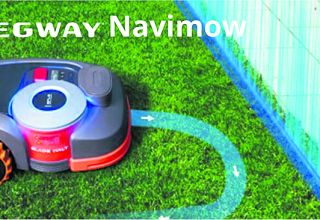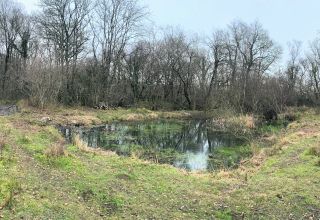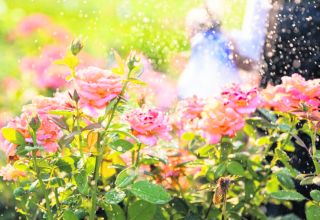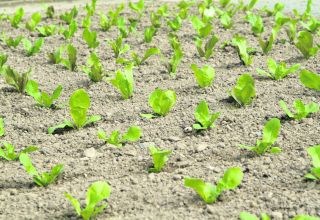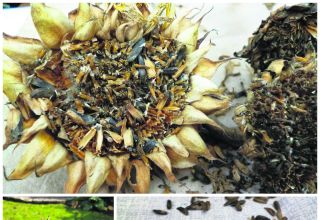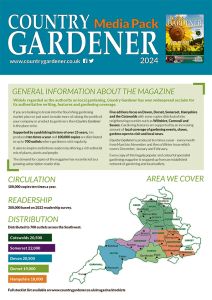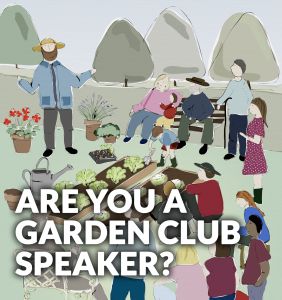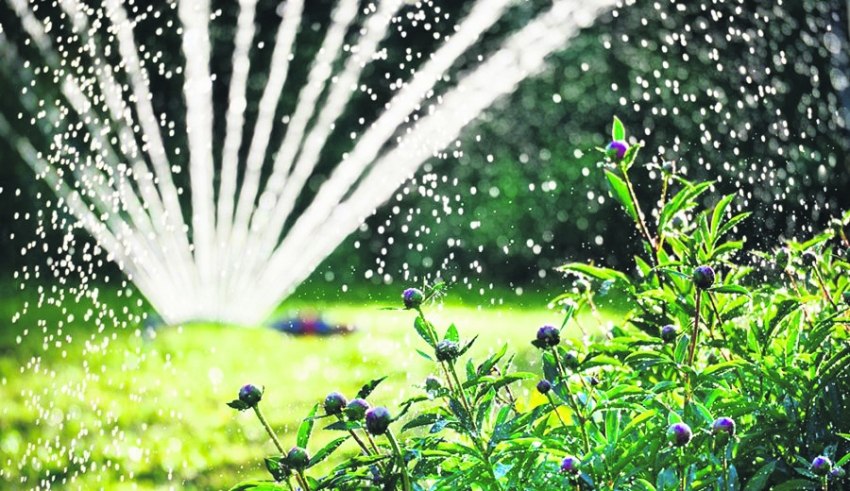
Water is one of the most precious resources we have, particularly in the gardening world. Do you have any idea how much you might be wasting in your garden?
It doesn’t have to be another summer like last year to understand the importance of water and conservation. Gardeners, who understand how vital water is to their hobby, can actually waste this resource more often than they realise.

Leaks in your sprinkler and hoses
According to Wessex Water research, an irrigation system that has a hole only about the size of a ballpoint pen can waste 6,300 gallons of water each month. So, check your hoses and hose connections each spring to make sure they were not damaged by freezing temperatures over the winter, and carefully examine the hose’s connection to the spigot for dripping or spray. A brand new hose washer can often fix this problem if it’s happening to you. Also, make sure your hoses stay neatly wrapped up when not in use so you don’t run the risk of running over it with a mower or having a pet chew holes in it.
Overwatering
Overwatering not only wastes water, but it can harm your garden. Drowning plants will suffer from root rot and will slowly suffocate from lack of oxygen being pulled in through their roots. Water logged plants are also more susceptible to disease and bacteria.
If you water manually, touch your soil beforehand to see whether it is still damp. Most plants only need to be water when their soil is dry. Use a watering can to deliver the right amount of water to seedlings or young plants by gently sprinkling overhead to just dampen the soil. In the case of lawns, it is better to water deeply, soaking the root zone every few days rather than watering just the surface every few days.
Losing rainwater
Find ways to harness valuable rainwater for your use. Connect rain barrels to the downspouts of your house, garage and shed, and then use the barrels’ spigots to attach a hose or to fill a watering can later.
Throwing out household water
Are you pouring barely used or lightly used household water down the drain? You can water your garden with recycled water from your family’s drinking glasses and from steaming or cooking vegetables and pasta. Or, you can try placing a bucket or two in your shower to collect the water that runs from the faucet while your water is heating up. Use it afterward to keep your garden healthy.
Watering at the wrong time
You can save water by watering at the right time of day and by avoiding certain weather conditions. For example, avoid windy days when water can literally blow away instead of reaching your plants’ roots, and avoid evaporation by watering in the morning when temperatures are typically at their coolest. Morning watering also helps plants face the heat of the day.
Not Mulching
You can retain soil moisture, and thereby need less water for your garden, by using mulch. Try adding a two-inch covering of composted leaves or shredded pine bark over the top of the dirt to keep it from drying out too fast. An added benefit is that mulch helps cut down on weeds.
Planting the wrong plants for your climate and/or soil conditions
Become familiar with your local soil and climate conditions, and then plant vegetables and flowers that will thrive in your location more easily. This way you can cut out additional watering as native plants will still do well with little to no extra attention.
Not using a compost system
You can develop a compost system no matter the size of your garden? Adding compost to your garden soil not only adds valuable nutrients, but it also helps it retain water, just like mulching.
So this summer try reducing your impact on the environment by minimising water waste around your home without compromising your garden.

